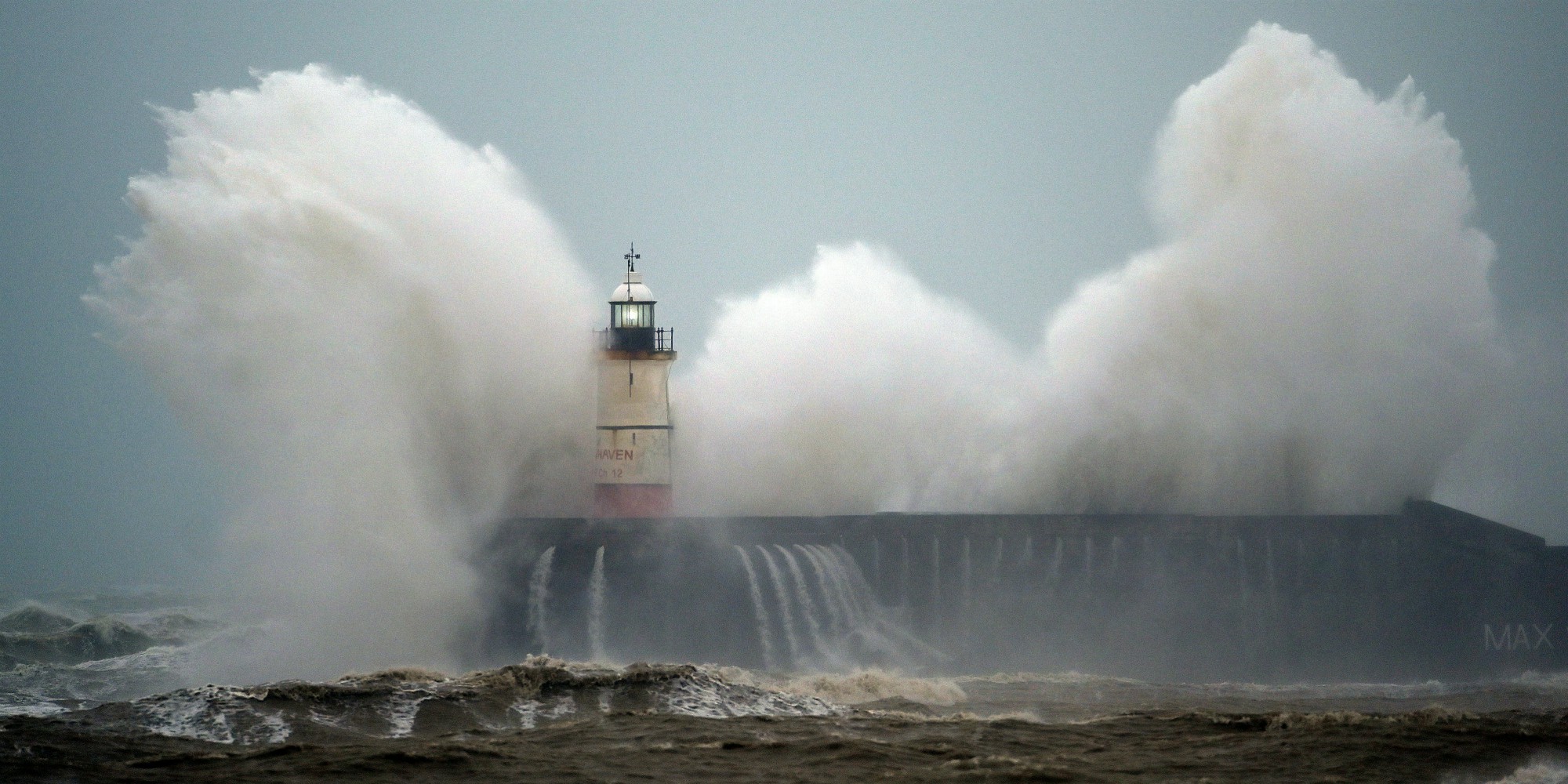Started on Sunday, storm Ciara sweeps across the northern third of France. On the night of Sunday to Monday, hundreds of rescue operations were necessary. A forty-something man killed himself by falling from his scooter Sunday afternoon in Drancy (Seine-Saint-Denis), an accident which could be linked to violent gusts of wind, according to a police source. The storm will spread to Corsica where the gusts of wind will reach nearly 200 kilometers during the night from Monday to Tuesday.
Before that, the storm will blow at 160 km / h on the Vosges ridges in the night from Sunday to Monday. In the north, the wind will start to weaken in the early morning of Monday, while remaining strong, and will gradually strengthen in the Alps as well as in Corsica, according to forecasts by Météo France. On the Isle of Beauty, gusts will reach 130 to 160 km / h in the late afternoon on Cap Corse and almost 200 km / h at the height of the event in the night from Monday to Tuesday.
In total, 42 departments from Finistère to Doubs via Pas-de-Calais were placed on Sunday in orange vigilance "violent winds" by Météo-France, which reports gusts exceeding 100 km / h at l inland and up to 130 km / h on the coast.
Thousands of homes without electricity in Finistère
On the electrical network, Enedis reported disturbances on the Boulogne coast as well as in Calais, Dunkirk, and even Liévin. Clippings have also been recorded in Finistère, according to the prefecture. In total, several thousand people were affected, but no precise assessment has been communicated. As the storm progressed, the municipalities closed their parks and gardens to the public: this was the case in the morning in Lille or Orléans, in the middle of the day in Paris, where the Eiffel Tower was also closed, and in the afternoon in Nancy or Strasbourg.
Suspended Ferries in the English Channel
According to a Météo-France bulletin published at midnight Sunday evening, "the strongest gusts are currently occurring from Belgium to the Yvelines". The storm has resulted since 6:00 pm winds between 100 and 120 km / h in the plain. The coastline is the subject of a "waves-submersion" alert from the Loire estuary to the beaches of the North. In the English Channel, ferry traffic connecting Calais to Dover (Great Britain) has been suspended "until further notice", according to the spokeswoman for the port of Boulogne-Calais. The connections between Poole and Cherbourg or Dieppe and Newhaven were also canceled on Sunday.
In Wimereux (Pas-de-Calais), where winter sports enthusiasts went out to sea, the rescuers of the SNSM denounced "unconscious" behavior, not respecting the "most basic calls to caution" issued by the prefectures . "It's impressive, the high tide coupled with the force of the wind causes sheaves that pass up to two meters above the dike," Pierre told AFP, who, like many onlookers, came to observe the storm on the seafront and having itself been heavily watered by a wave.
Canceled flights
In the air, connections were also severely disrupted: several flights were delayed and even canceled for some at the airports of Caen, Lille or Brest, affecting thousands of passengers, when that of Beauvais suspended all traffic, at least until 'at 7 a.m. Monday morning.
At Paris-Charles de Gaulle and Paris-Orly, around fifty flights were canceled and delays were recorded, the airport authorities encouraging passengers to inquire with their companies.
Complicated traffic, removal of several TER in Lorraine and Alsace
Inland, car or rail traffic was complicated by falling branches or trees as in Ile-de-France, traffic was cut on part of the H line of the Transilien. From the Paris-Nord station, several routes have been modified, delayed or deleted. In Normandy, several TER links have been replaced by coaches, while in Center-Val de Loire, those between Chartres and Le Mans have been canceled.
In Hauts-de-France, all SNCF traffic was interrupted from 8 p.m., with the exception of TGVs traveling from and to Paris, Lille, Arras, Dunkirk and Calais Fréthun. SNCF also announced the abolition of several TER on Sunday evening and Monday in Lorraine and Alsace, "as a safety measure".
Roofs torn off
Aid was particularly requested: SDIS du Nord, for example, identified "more than 400 interventions related to the storm". The roofs of municipal police buildings in Caudry or of a college in Quesnoy were damaged. Further east, in Saint-Dié-des-Vosges (Vosges), "the roof of a school partially flew away" Sunday evening without causing any injuries, said the prefecture. The emergency services of Grand Est expected an increase in activity from midnight with a peak between 3H and 5H depending on the department.

